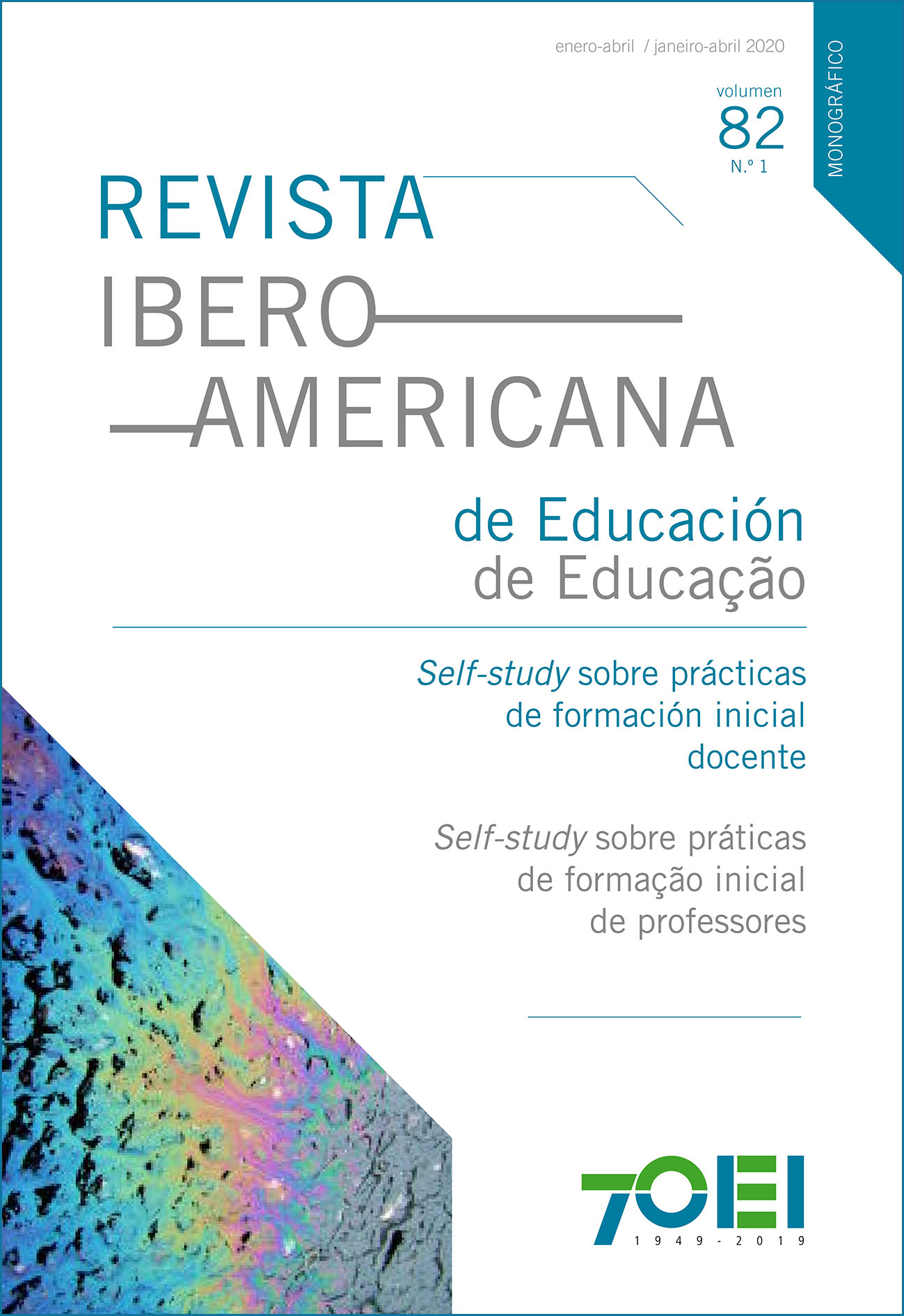Accompaniment of initial training pedagogical practices: A self-study based on the role as a guide teacher
DOI:
https://doi.org/10.35362/rie8213660Keywords:
pedagogical/educational practice; trainer/mentor; educational reflection; self-studyAbstract
In the context of my experience as a high school teacher of Biology and Sciences, 5 years ago, and while I was a teacher-in-training, accidentally I became the guide for other future Biology and Sciences teachers. This created some tension in my professional life because it blurred the lines between my role as a classroom teacher and my role as a guide for other teachers-in-training. In this situation, I decided the goal of my research would be to characterize the transformation of my own self-reflective processes through self-study of the role of a mentor and teacher of pedagogical practices in Biology and Sciences. The results show a tension in my identity process with this new role, allowing me to differentiate my role as a classroom teacher, and move forward towards a new identity as a teacher trainer or guide. In addition, it allowed me to understand my own educational practices from a more complex point of view, which allows for the inclusion of triad perspectives, the problematization of theory and classroom experiences, as well as realizing the high impact and influence which personal/family and emotional relations have in the ways one interacts with students and teachers-in-training.
Downloads
References
Black, P. & Plowright, D. (2010). A multidimensional model of reflective learning for profesional development. Reflective practice, 11(2), 245-258.
Brewer, J. & Hunter, A. (2006). Foundations of multimethod research: Synthersizing Styles. Thousand Oaks, CA: Sage.
Clarke, A. & Erickson, G. (2004). The nature of teaching and learning in self- study. In J. Loughran, L. M, V. LaBoskey & T. Russell (Eds.), International handbook of Self- study of teaching and teacher education practices (Vol. 1, pp. 41- 67). Dordrecht: Kluwer Academic Publishers.
Correa, E. (2011). La práctica docente: una oportunidad de desarrollo profesional. Perspectiva Educacional, 50 (2), 77-95.
Correa, E., Malo, A. & Gervais, C. (2013). La reflexión compartida, ¿una estrategia de facilitación en inserción profesional? In E. Correa, M. Cividini, R. Fuentealba & I. Boerr (Eds.), Formación e inserción profesional: desafíos y pistas de facilitación para la profesionalización docente (pp. 137-157). Santiago, Chile: OEI.
Dewey, J. (1933). How we Think: A restatement of the relation of reflective thinking to the educative process. Boston: D.C. Heath and company.
Dewey, J. (1964). Experiencia y Educación. Buenos Aires: Editorial Losada.
Domingo, Á. & Gómez, V. (2014). La Práctica Reflexiva. Madrid: Narcea.
Figueira, E. M. & Rivas, M. R. (2011). General tasks of tutors during the Practicum course: reality versus ambition in the development of the tutorial work. Revista de Educacion, 354, 155-181.
Frick, L., Carl, A. & Beets, P. (2010). Reflection as learning about the self in context: mentoring as catalyst for reflective development in pre-service teachers. South African Journal of Education, 30(3), 421-437.
Gervais, C. (2007). Des enseignants associés explicitent leurs savoirs d’expérience (1ª ed.). Québec, Canada: Université du Québec.
Hirmas, C. & Blanco, R. (2016). Introducción. In J. Cornejo, J. Loughran, T. Russell, A. Berry, S. Sandretto, S. Schuck, . . . J. J. Mena, Formadores de Formadores, Descubriendo la Propia Voz a través del Self-Study (pp. 7-11). Santiago: BUK Grafica & Editora.
Imbernon, F. (2001). Claves para una nueva formación del profesorado. Revista Investigación en la Escuela, 43, 57-66.
Kemmis, S. (2009). Understanding professional practice: a synoptic framework. En B. Green (Ed.), Understanding and Researching Professional Practice (págs. 19-38). Rotterdam, The Netherlands: Sense Publishers.
Korthagen, F. (2010). La práctica, la teoría y la persona en la formación del profesorado. Revista Interuniversitaria de Formación del Profesorado, 24(2), 83-101.
Latorre, M. (2004). Aportes para el análisis de las racionalidades presentes en las prácticas pedagógicas. Estudios Pedagógicos, 30, 75-91.
MINEDUC. (2005). Comisión sobre Formación Inicial Docente. Informe Comisión sobre formación inicial docente. Santiago: MINEDUC.
Montecinos, C. & Walker, H. (2010). La colaboración entre los centros de práctica y las carreras de pedagogía. Docencia, 42, 64-73.
Olarte, A. C. (2016). El auto estudio como enfoque de investigación en la formación docente. Colombian Applied Linguistics Journal, 18(2), 9-10.
Russell, T., Fuentealba, R. & Hirmas, C. (2016). Formadores de formadores, descubriendo la propia voz a través del self-study. Santiago: Organización de Estados Iberoamericanos.
Russell, T. & Mena, J. (2016). El self-study como forma de investigación en la formación del profesorado: Un análisis de contenido de los trabajos presentados en el X Congreso Internacional sobre Self-Study S-STEP de 2014. In J. Cornejo, J. Loughran, T. Russell, A. Berry, S. Sandretto, S. Schuck, . . . Mena, Formadores de Formadores, Descubriendo la Propia Voz a través del Self-Study (p. 236). Santiago: BUK Grafica & Editora.
Shön, D. (1987). El profesional reflexivo. Cómo piensan los profesionales cuando actúan. España: Ediciones Paidós Ibérica, S.A.
Vallejo, R. & Finol de Franco, M. (2009). La triangulación como procedimiento de análisis para investigaciones educativas. REDHECS, 7, 117-133.
Vanegas, C. (2016). Procesos Reflexivos de profesores de ciencias durante las prácticas pedagógicas de formación inicial (Tesis Doctoral). Santiago, Chile: Pontificia Universidad Católica de Chile.
Vanegas, C. & Fuentealba, A. (2019). Identidad profesional docente, reflexión y práctica pedagógica: Consideraciones claves para la formación de profesores. Perspectiva Educacional, 58(1), 115-138.
How to Cite
Downloads
Published
Issue
Section
License
Any authors who publish with this journal accept the following terms:
















